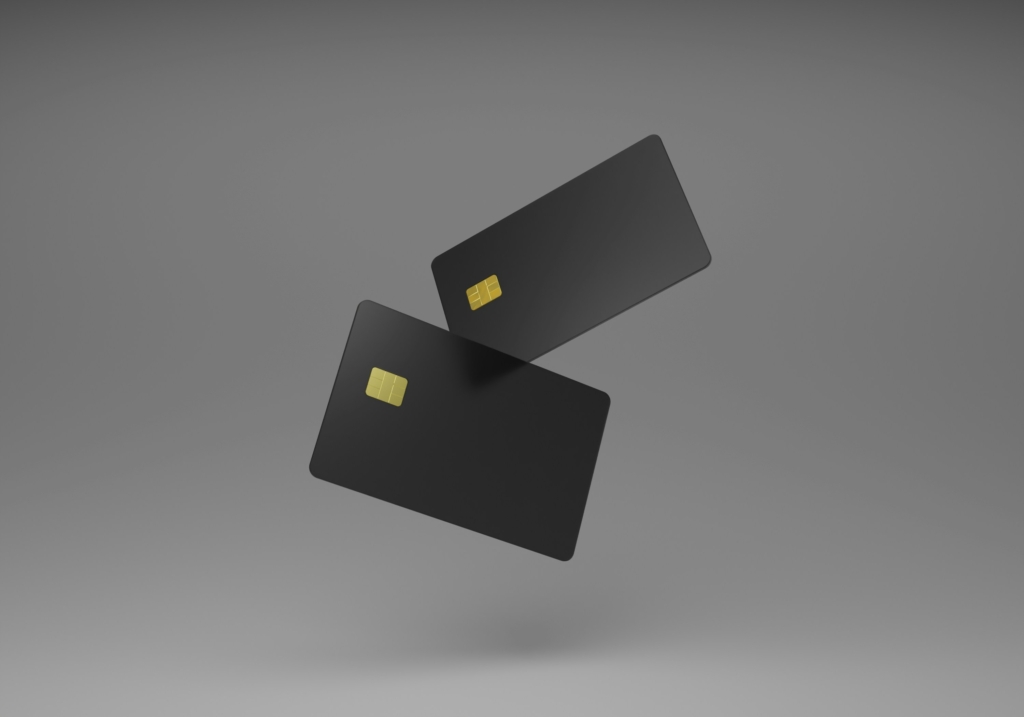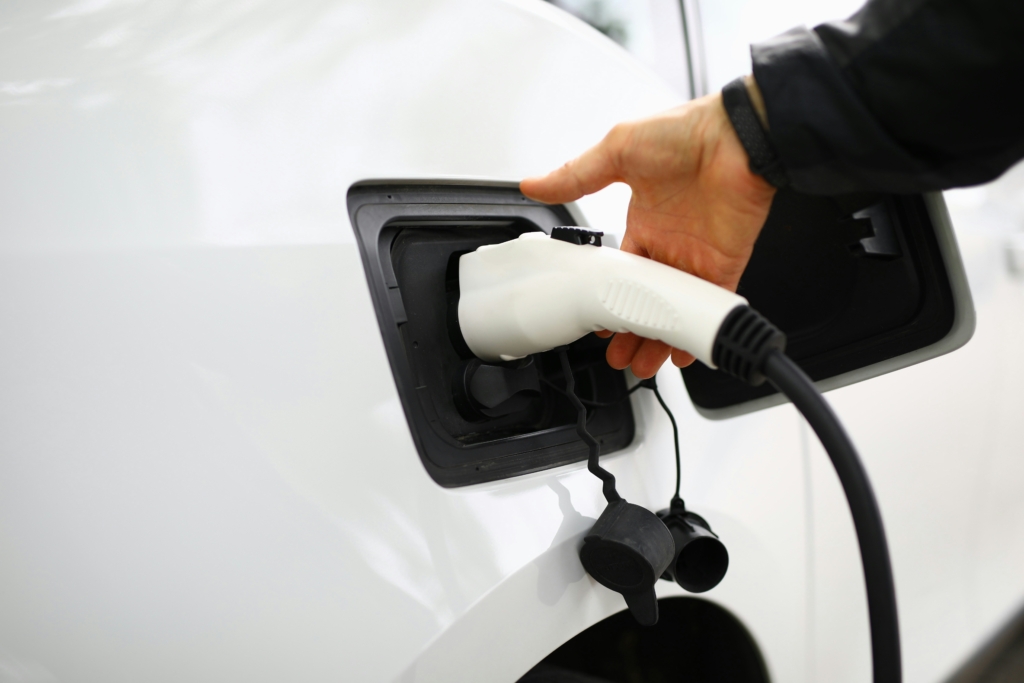Why Is My Credit Score Low After Getting a Credit Card?

Build strong credit
while you save

You’ve worked hard at building your credit and you now have a good credit score that can be used for applying and getting approved for the credit card you’ve always wanted. Congrats!
But a few weeks after you activate and begin using the new card, you may notice that your credit score takes a dip.
You might think: “This doesn’t make sense, I have more credit now, shouldn’t my score go up? Why is it going down instead?”
While getting a new credit card can be beneficial to your overall credit, the positive influence on your credit score will be long-term.
In the short term, the new card can negatively impact your FICO credit score, thanks to decreasing your average account age and increasing your number of hard pulls.
As frustrating as this is, so long as you maintain on-time monthly payments for the new credit card, the dip to your credit score will only be temporary.
How Getting a New Credit Card Impacts Your Credit Score
Opening a new credit card, or any other type of credit line, will have an impact on your FICO score. These changes can be both positive and negative.
Changes to your credit score won’t happen overnight, it will take weeks or even months for you to start seeing the changes.
The initial changes you will likely see are the negative ones or the ones that have the power to decrease your FICO score. If applying for the card resulted in a hard pull, that will be the first negative impact on your score.
The average age of your credit will be the next area to take a hit. The degree of impact here will depend on how long you have had your existing credit accounts open.
If you specifically opened the new card to consolidate debt or to make a large purchase, then your credit utilization could take a big hit as well.
While this sounds discouraging, so long as you maintain a good payment history, the positive influences to your credit report, like an increase to your overall credit limit and diversification of your credit types, could see your score increase in the long run.
Hard Pull Impacts – Negative
Unless you are opening a secured credit card, receiving a hard pull on your credit is nearly impossible to avoid.
A hard pull is when the credit card company or card issuer performs a credit check. They need to verify that you are who you say you are and determine if you have a good credit score or a bad credit score, which can affect your approval and/or interest rate.
There is usually a disclaimer on the credit card application that informs you that the lender will pull your credit report and that this could impact your score.
The reason why a hard pull can hurt your credit score is that a hard pull signifies you are looking for credit. One or two hard pulls won’t damage your score too much, but a large number of hard pulls over a short amount of time will.
Too many hard pulls or credit inquiries, signal that you could be strapped for cash and living on your credit lines.
The good news is that your FICO score is made up of several different factors, and credit inquiries make up a pretty small portion of your score.
Lower Average Age of Accounts – Negative
The average age of your accounts or length of credit history has a slightly bigger impact on the FICO credit scoring system.
There are two parts to this portion of your credit score.
The first is the age of your oldest account. The longer you have had a credit account, the better this is for your score. Unless the new credit card you are opening is your first credit line, then this factor will not be impacted.
The second part is a calculation of the average age of all of your accounts (both open and closed). Essentially, you add up all the months/years you’ve had each account open and divide that by the number of accounts. The higher this number is, the better your score.
So when you open a new account, this drops your average account age. Depending on your existing credit history, this could result in a drastic dip in your credit score.
Example Calculation
| Before the New Account | After the New Account |
| Credit Card 1: Open 2 years | Credit Card 1: Open 2 years and 2 months |
| Auto Loan: Open 3 years and 4 months | Auto Loan: Open 3 years and 6 months |
| New Credit Card: Open 2 months | |
| Average Age of Account: 2.67 Years | Average Age of Account: 1.94 Years |
As you can see in the above calculation, if you have a small number of existing accounts which are several years old, opening a new card will be a huge hit to your average age of account, which will translate to a significant dip in your credit score.
If you have multiple credit cards and other accounts, or your accounts are younger, then the dip to your average account age and credit score will not be as bad.
Increase in Credit Utilization – Negative
What was your reason for opening the new credit card?
If it was to make a large purchase, then your credit utilization could take a hit. And credit utilization makes up a significant portion of your credit score.
Credit utilization is calculated by adding up the total balance of debt on all of your revolving credit accounts and dividing that number by the total credit limits on those accounts.
For example, let’s say that you had 3 credit cards, each with a small balance being reported.
Credit Card 1: $1000 credit limit with $200 balance.
Credit Card 2: $2500 credit limit with $350 balance.
Credit Card 3: $3000 credit limit with $475 balance.
Your credit utilization ratio would be: $1025/$6500 = 15.8%
The lower the credit utilization percentage, the higher your score will be.
So, if you put a large balance on your new credit card, this will increase your overall credit utilization rate which will, in turn, drop your credit score. Not to mention, it will reduce your available credit and put you further in debt.

Increase in Overall Credit Limit – Positive
If your choice in opening a new credit card was not to make a large purchase, this is good news for your credit score. Once the new credit limit begins appearing on your credit report, this could decrease your credit utilization ratio.
If we keep the same credit card balances and limits as the example above and add a 4th credit card (your new one) with a $4000 credit limit and a $100 balance, then the credit utilization ratio decreases to 10.7% or $1125/$10,500.
The positive aspect of increasing your overall credit limit only works if you keep utilization low. If you maintain a high balance or debt amount on your new card, then your increase in credit limit won’t help your score as much.
Credit Diversity – Positive
If this new card is your first credit card, then this is great news for your credit.
One aspect of the FICO credit scoring model is your mix of credit or credit diversity. Basically, this is an overview of what types of credit lines you have open.
Credit types include installment loans (i.e. a personal loan like a credit builder loan), credit cards, retail accounts, and loans from a mortgage lender.
While you don’t need to have one of every credit type to max out your score, you do need to have more than one type of credit line.
So, if all you previously had was a student loan or an auto loan, then adding a credit card to your report should boost your score. Even if you already have a credit card, opening a new one could still boost the credit mix portion of your score if the number of accounts you have is small.
Unlike credit utilization, debt is a good thing when it comes to credit mix.
A situation where the credit mix part of your score could be negatively impacted would be if this is your 6th credit card and you have no other types of credit on your credit report.
If this is the case, then you should look at accounts that build credit and/or consider ways on how to build credit without a credit card.
Build strong credit with a trusted partner
Inc. Magazine Names Austin Capital Bank To Inc. 5000 List For Seventh Consecutive Year
Bank revenue increases to almost $50 million Austin, TX (Aug. 16, 2022) – Fueled by record-revenue over the past three years, Austin Capital Bank was named to Inc. Magazine’s Inc. 5000 list of the fastest-growing independent companies for the seventh consecutive year. Austin Capital Bank, a leader in digital banking products and responsible financial innovation […]
How Long After Getting a Credit Card Will My Credit Score Go Up?
If your score went down after you opened a new credit card, then you may be wondering when it will go up again. The exact answer will depend on the makeup of your unique credit report.
The credit inquiry part of your score may take a while as credit inquiries stay on your report for two years before falling off. That said, they are no longer calculated in your score after the 1 year mark.
Likewise, improving your average age of account is simply a waiting game. Each month, your average age of account will go up and your score along with it. Just how fast this happens will depend on the number of accounts that you have and their ages.
How fast your credit utilization will improve will depend on how fast you can pay down your debt. If the ding to your utilization was because you transferred balances from other cards, then it should only take a month or so for the reporting to catch up and your score to improve.
You also need to maintain the other key areas affecting your credit report, which include sustaining a good payment history, not opening any new accounts, and not closing existing accounts.
The majority of people should see a recovery in their score within a few months to a year. Even if it takes a while, your score will eventually recover, and you could even hit the excellent credit threshold.
The Importance of Checking Your Credit
How do you know if your credit is improving or not? You need to check your credit report to find out. Once a year, or each time you have a credit application rejected, you can obtain a free credit report from each credit reporting agency (credit bureaus).
You’ll want to not only make sure that your new account is reporting, but you’ll also want to check the items on your existing credit history. Also, check the payment history to make sure there aren’t any missed payments that you are unaware of.
Next, check your debt or credit utilization to ensure everything is reporting correctly. If you’ve paid off a debt, but a balance is still showing on your report, you’ll need to contact the lender.
If you find errors on your report and suspect fraud, you can set up a credit freeze until the issue gets resolved. Even if the errors you find are minor, it is important to get them fixed as they could mean the difference between a poor credit score and a good credit score.
For more information, check out this article on how to correct credit card errors.
CreditStrong helps improve your credit and can positively impact the factors that determine 90% of your FICO score.
